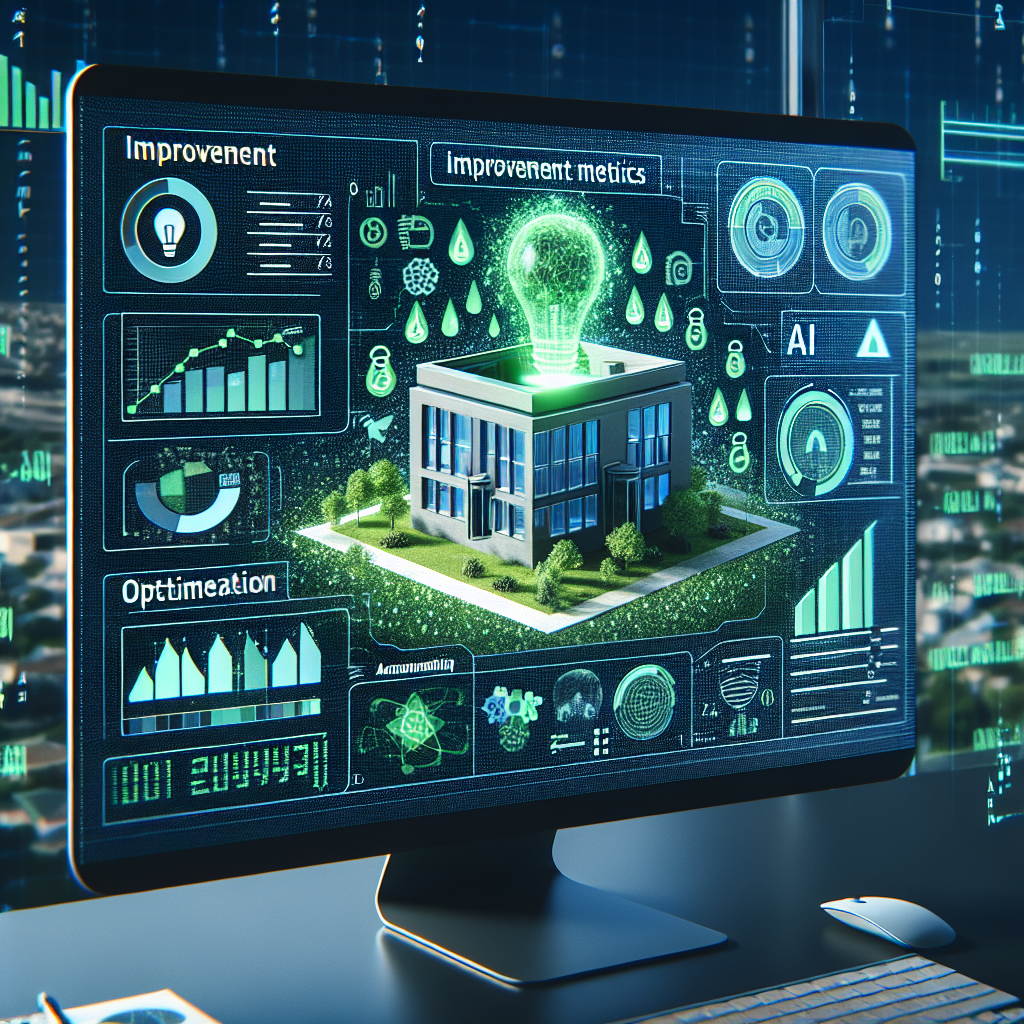Artificial intelligence (AI) is revolutionizing the way we analyze and optimize building performance. By utilizing AI algorithms and machine learning techniques, building owners, operators, and designers can now access powerful tools to improve energy efficiency, reduce operating costs, and enhance occupant comfort. In this article, we will explore how AI is transforming building performance analysis and answer some frequently asked questions about this innovative technology.
AI-powered Building Performance Analysis: A Game Changer
Traditionally, building performance analysis has relied on manual data collection and analysis, which can be time-consuming and error-prone. With the advancement of AI technologies, buildings can now be equipped with sensors and smart devices that collect real-time data on various parameters such as energy consumption, indoor air quality, and occupant behavior. This data is then fed into AI algorithms that can analyze patterns, identify trends, and make predictions to optimize building performance.
One of the key advantages of using AI for building performance analysis is its ability to handle large volumes of data and identify complex relationships that may not be apparent to human analysts. For example, AI algorithms can detect subtle changes in energy consumption patterns that may indicate equipment malfunctions or inefficiencies. By identifying and addressing these issues early, building operators can prevent costly breakdowns and reduce energy waste.
AI can also be used to optimize building systems in real-time. By continuously monitoring data from sensors and actuators, AI algorithms can adjust HVAC settings, lighting levels, and other building parameters to maximize energy efficiency while maintaining occupant comfort. This dynamic optimization can lead to significant cost savings and environmental benefits over time.
Furthermore, AI can help building operators make informed decisions about maintenance and upgrades. By analyzing historical data and predicting future performance trends, AI algorithms can recommend the most cost-effective strategies to improve building efficiency and extend equipment lifespan. This proactive approach to maintenance can help prevent unexpected failures and reduce downtime, ultimately leading to a more reliable and sustainable building operation.
FAQs about AI in Building Performance Analysis
Q: How does AI improve energy efficiency in buildings?
A: AI algorithms can analyze data from sensors and smart devices to identify patterns and trends in energy consumption. By detecting inefficiencies and optimizing building systems in real-time, AI can help reduce energy waste and lower operating costs.
Q: How is AI used to optimize HVAC systems?
A: AI algorithms can monitor data from temperature sensors, occupancy sensors, and other HVAC components to adjust heating and cooling settings based on real-time conditions. This dynamic optimization can improve comfort levels for occupants while minimizing energy consumption.
Q: Can AI help predict equipment failures in buildings?
A: Yes, AI algorithms can analyze equipment performance data and detect anomalies that may indicate potential failures. By identifying these issues early, building operators can schedule maintenance proactively and avoid costly downtime.
Q: How can building owners benefit from AI-powered performance analysis?
A: Building owners can benefit from AI in several ways, including reduced energy costs, improved occupant comfort, and increased property value. By optimizing building performance with AI, owners can enhance sustainability, competitiveness, and overall ROI.
Q: What are some challenges of implementing AI in building performance analysis?
A: Some challenges of implementing AI in building performance analysis include data privacy concerns, upfront costs of sensor installations, and the need for specialized expertise to develop and maintain AI algorithms. However, the long-term benefits of AI outweigh these challenges for many building owners and operators.
In conclusion, AI is transforming the way we analyze and optimize building performance. By harnessing the power of AI algorithms and machine learning techniques, building operators can improve energy efficiency, reduce operating costs, and enhance occupant comfort. With real-time data monitoring, predictive maintenance, and dynamic optimization, AI is revolutionizing the way buildings are managed and operated. As AI technologies continue to evolve, we can expect even greater advancements in building performance analysis and sustainability practices.

